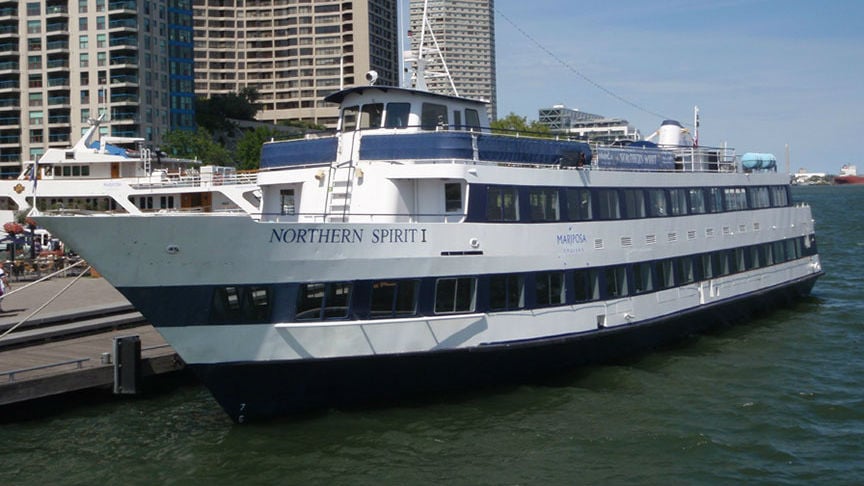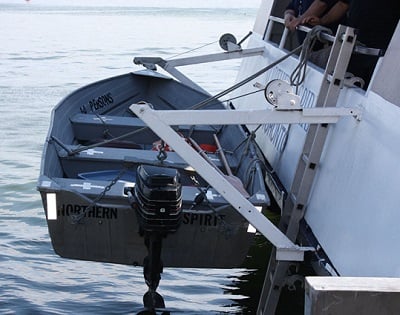Intoxication Led to Overboard Fatality

The Transportation Safety Board of Canada (TSB) determined that a passenger’s unsafe behavior and intoxication led to him falling overboard and drowning from the vessel Northern Spirit I in Toronto, Canada, in 2015. The investigation also found that the crew’s emergency response efforts were not coordinated.
On June 13, 2015, the Northern Spirit I was on an evening cruise when security guards near the bow of the vessel observed that one of the passengers was behaving erratically and appeared to be intoxicated. When the passenger was seen leaning over the upper deck railing on the starboard side, two security guards rushed over to him and attempted to prevent him from falling, but he went overboard.
One of the guards advised the master of the situation, search and rescue authorities were alerted, and the vessel was maneuvered to return on a reverse track in an attempt to locate the passenger. Numerous first-responder organizations joined the search effort as the evening progressed, but the search was unsuccessful. The passenger's body was recovered 18 days later.
 The investigation found that the passenger was intoxicated, and that he had been drinking before boarding and while on board the vessel. Security guards and crew members had not detected this during pre-boarding screening or on board the vessel, and the passenger had not been denied alcoholic beverage service. The passenger's high blood alcohol concentration affected motor skills and increased the risk of hypothermia, which decreases the chance of survival in the water.
The investigation found that the passenger was intoxicated, and that he had been drinking before boarding and while on board the vessel. Security guards and crew members had not detected this during pre-boarding screening or on board the vessel, and the passenger had not been denied alcoholic beverage service. The passenger's high blood alcohol concentration affected motor skills and increased the risk of hypothermia, which decreases the chance of survival in the water.
Because the signal to initiate the man-overboard procedure was not sounded, the investigators concluded that the crew's response to the emergency was not coordinated and did not align with the company emergency procedures. In addition, there were delays in launching the vessel's emergency boat owing to its position on the vessel's stern.
Although the crew had performed some emergency drills, they had not performed any man-overboard drills, which may have prevented the crew from being able to easily recall the steps to take during a person-overboard situation. There is a risk of increased death or injuries during emergencies if crew members do not practice drills for emergency procedures, states the investigation.
The report is available here.
